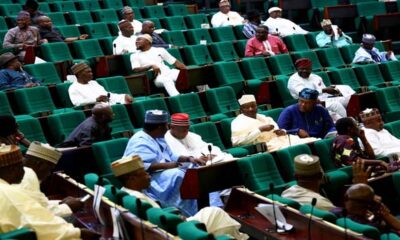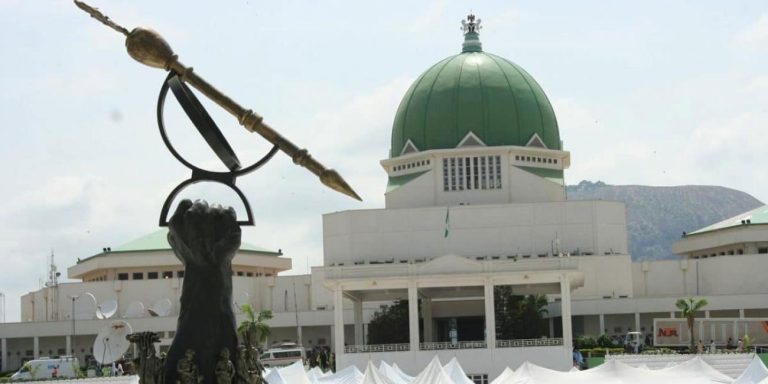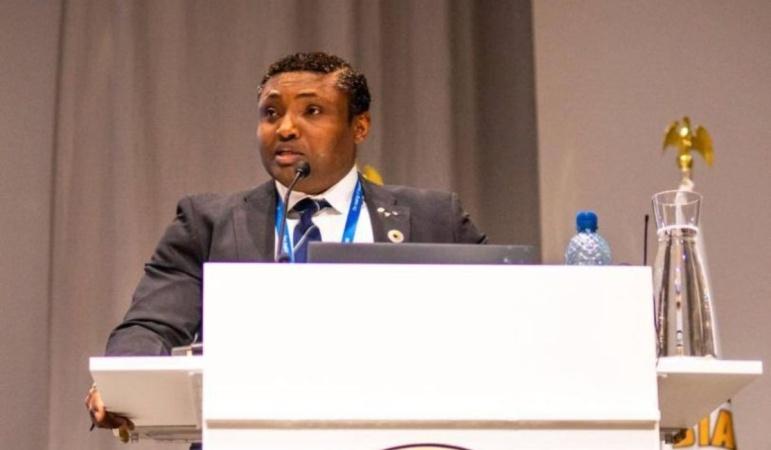The Joint Admissions and Matriculation Board, JAMB, explained, yesterday, that the decision by stakeholders in education sector to reduce tertiary institutions’ admission cut-off points, beginning with the 2017 academic calendar, was to stop the quest for foreign education by Nigerians.
It also said the cut-off marks being condemned by the public, like in previous cases, were never strictly followed by most institutions.
“Institutions were going behind to admit candidates with far less, with others admitting candidates who never sat for JAMB, “it said.
The board, which queried the continuous controversies arising from the stakeholders’ action, blamed rising quest for foreign education to what it called “our policies and attitude to national values and deep concern for realistic benchmarks for national development.
“Such and so many other poorly thought out policies have pushed our frustrated candidates out of Nigeria to developed and neighbouring African nations for education they could not get at home.’’
To this end, JAMB vowed to press ahead with current admission benchmark, stressing that it would not be deterred to do what was right for the country.
JAMB, in a statement by its Head of Media, Dr Fabian Benjamin, said the education sector was at its retrogressive stage because many were afraid to say the truth for fear of being condemned.
According to the statement, “it is obvious that the quest to go abroad for foreign education is not as a result of shortage of spaces or standard given some of the institutions attended by these Nigerians but partly due to some of our policies and attitude to national values and deep concern for realistic benchmarks for national development.
“The much trending controversy over the just released cut off marks for 2017 admission exercise by stakeholders at the policy meetingis quite unnecessary.”
“Today, we are where we are because many are afraid to say the truth for fear of being condemned rather than being celebrated and set free as commanded by the Holy books.
“This not withstanding, the Board will not be deterred, we will continue to say the truth as it is and support policies that would bring our education system out of the woods.
“Today, it is a known fact that millions of Nigerians are out there schooling in mushroom institutions and they will at the end come back with all kinds of degree certificates that we can not explain their contents.
“Our naira is continually devalued as a result of so many reasons, including the pressure to pay these school’s fees.
“Irrespective of this turn of event in our education history, our tertiary institutions hardly fill their available spaces otherwise known as carrying capacity.”
The statement continued:” The question we all should be concern about is how to address the flight of Nigerians to glorified secondary schools called universities in Ghana, Uganda and even Gambia and others.
“ How do we ensure that whatever we do has positive multiplier effects on other sectors of the economy. If we deny our candidates the opportunity to school in Nigeria they will find their way out and in doing that deplete our economic base.
“To provide answers to all these challenges, stakeholders decided that institutions should be allowed to determine their cut off marks according to their peculiarities and the quality and standard they want to be known for.
‘It is expedient to state here that the worst admitted cut off mark in a Nigerian institution is far better than allowing them to fly out to some of the institution they are attending out there which we all know are nothing to be proud of.
“Besides events have shown that many institutions do not comply with cut off marks in the past hence the flood of requests for regularization. Now the new management has resolve to stop it and ensure full compliance with resolutions on cut off marks.
“The Board will equally ensure that it correct all anomalies existing especially as regards the powers of institutions to make pronouncements on admissions and other related matters affecting the institutions.
“The public should not forget that the Board is a creation of the demands of the then Vice Chancellors for a central institution that will streamline the process of admission and eliminate multiplicity of entrance examination and admissions.
In view of this mandate, the Board will confine itself to this provisions especially the conduct of examinations and release of results to the institutions.
“It is also very misleading to say that Vice-Chancellors reject the cut off mark. This may be the editors power of caption, you can only reject an offer and not when the power to determine such privilege lays squarely on your hands.”
It explained that prior to the decision, “all Heads of tertiary institutions were requested to submit their cut off benchmark to the Board which will then be used for the admission and that these benchmarks once determined cannot be changed in the middle of admission exercise.”
“Again, it is necessary to explain that the 120 mark does not in any way suggest that once you have 120 then admission is sure for you. Institutions will admit from the top to the lest mark.
“We are now starting the actually monitoring of adherence to admissions guide lines, cut off marks inclusive.
‘This act to say the least is very distasteful and damaging to our national data and identity. Unfortunately the public has been kept away from this fact for such a long time and now that we are saying it the way it’s and working to address it, the public is criticising us using non existing paremetres that were only announced and not followed.
“ In years past admission were done with worst cut- off marks. We are determined and ready to correct all these with the 2017 exercise, the Board has designed a Central Admissions Processing System (CAPS) to check back door admission and other unwholesome practices associated with admission.
‘’We are sure that the system will bring out the good in us as it will also make provision for candidates to track their admission.
“This empowers them to raise queries if a candidate they have better scores and other prerequisites are admitted which CAPS will not allow anyway. This is the inclusiveness and transparency that education needs.’’

 BIG STORY5 days ago
BIG STORY5 days ago
 BIG STORY5 days ago
BIG STORY5 days ago
 BIG STORY4 days ago
BIG STORY4 days ago
 BIG STORY4 days ago
BIG STORY4 days ago
 BIG STORY5 days ago
BIG STORY5 days ago
 BIG STORY2 days ago
BIG STORY2 days ago
 BIG STORY3 days ago
BIG STORY3 days ago
 BIG STORY3 days ago
BIG STORY3 days ago




















